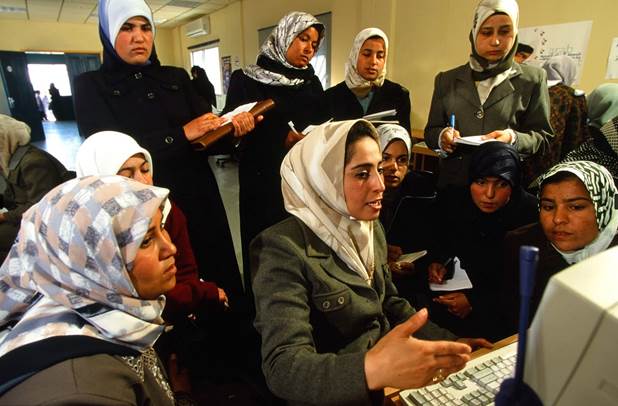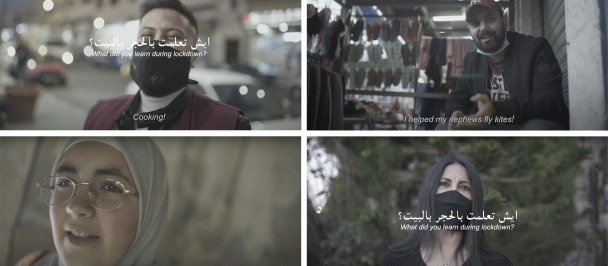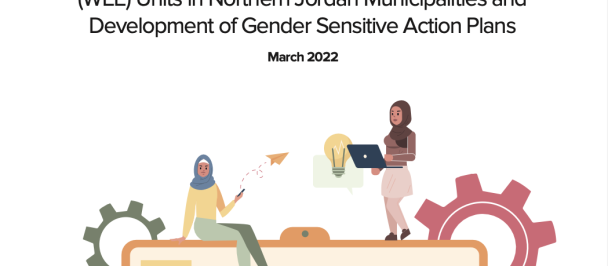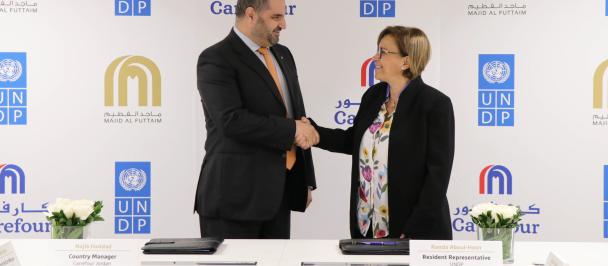Women Economic Empowerment
Women Economic Empowerment
The project's objectives are:
Reporting the environmental baseline of the current animal manure management at Al-Mafraq Governorate.
Establishing a pilot open windrow composting facility (30 tons/day, small-medium scale) within Al-Hussainyyat landfill site.
Provision of the infrastructure, equipment, and tools needed for the proper operation and manure-based compost industry.
Provision of the state of the art technologies, know-how and technical knowledge for open aerobic windrow composting and the relevant capacity building and educational training for the working staff.
Development of a partnership model for local community engagement in the operational phase based on the operational and marketing plans.
Implementing a pilot project for producing organic manure-based compost products through financially well-being process.
Creating intensive employment schemes through the different activities of the manure composting processing and enhancing income generation and livelihoods for the local host communities.
Women empowerment and gender involvement in packing and marketing of the final compost products.
Main Outputs
Providing a group of Jordanian and Syrian women with access to sustainable livelihoods and employment opportunities through different interventions:
- Capacity Building and Employment in Digital Sector in Jordan for Women
- Establishment of Local Farmers and Producers Market for Women
Achievements
Capacity Building and Employment in Digital Sector in Jordan for Women:
The project has built the capacity of 30 Jordanian and Syrian women on digital/computer programming sector, which is one of the most flourishing economic sectors in Jordan and beyond. After the completion of several trainings including English Language, soft skills, JavaScript etc., the participants were provided with the available employment opportunities in this sector. The employment opportunities include online income-generation which does not require physical attendance at the work venue, which is often a preferable option for women in the region.
Vocational Training and Employment for Women:
The vocational training program targeted 50 vulnerable Jordanian and Syrian women, with skills relevant to economic sectors with high labor demands, such as food processing, beauty and sewing. After the completion of the vocational training, the project supported their access to the labour market. Where possible, women are encouraged to build groups and start their own microbusinesses. They were provided with toolkits to establish their homebased businesses.
Establishment of Local Farmers and Producers Market for Women:
The project invested in interventions for providing 15 women in the extremely low income and poor communities with access to sustainable livelihoods and employment opportunities through building their technical/hands-on skills on the highly demanded professions in the targeted areas, such as food processing. It has provided support for 30 women through developing and implementing local farmers’ and producers’ market, where they can; i) showcase their traditional and organic agriculture products, and ii) share food, traditions, and hospitality in a way that brings people together around a common goal.
- Souq Nemeh was opened on 20th of May 2017. It is being held on a weekly basis in order to extened the market access to the female beneficaires of this project.
- 500 crops of Damascus rose were moved from the nursery to the land in Ajloun to be grown and collected in Spring.
- Rehabilitation the building to install the distillation equipment that will be used for distillation the Damascus rose and other herbs. This center will be run by the local community.
Status Closed Start Date December 2015 End Date June 2017 |
Focus Area Inclusive Growth and Sustainable Livelihoods Donor Government of Finland Implementing Partner PTI, RBK |

 Locations
Locations


